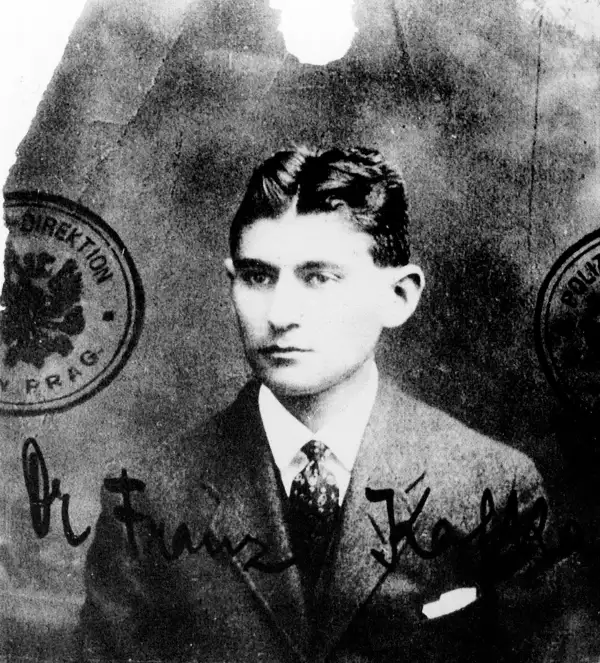Hero Judge Shreds Bank of America for Putting Couple Through ‘Kafkaesque’ Foreclosure Nightmare

"Franz Kafka lives. This automatic stay violation case reveals that he works at Bank of America."
So begins the epic 107-page ruling by a judge in California, who found that Bank of America's "brazen" and "heartless" behavior, as well as "institutional obstinance and dishonesty" during an improper foreclosure, merited fines of $46 million. In his ruling, U.S. Bankruptcy Court Judge Christopher Klein described the homeowners' ordeal as a "kafkaesque nightmare," summing up their surreal sense of confusion and despair. He also compared their trials to the Greek myth of Sisyphus—the guy condemned to rolling a boulder up a hill for eternity—and even referenced one of the biggest scandals in U.S. politics.
“There comes a point at which this case is reminiscent of Watergate: the denial and coverup becomes worse than the crime,” Klein wrote. (The Consumerist has a link to the entire ruling.)
The crazy case stems back to 2009, when the homeowners, Erik and Renee Sundquist, sought a loan modification for their house in Sacramento. Bank of America, which had taken over the bank that originally gave the couple a mortgage, instructed them to stop their monthly payments “Their sole reason for defaulting, which they did with considerable reluctance (their credit score had been above 800), was acquiesce in Bank of America’s demand that they default as a precondition for loan modification,” the court ruling explains.
The bank then "led the Sundquists on a not-very-merry chase by inviting and entertaining mortgage modification applications it had no intention of granting," the judge writes. A "game of cat-and-mouse" commenced. “With one paw, Bank of America batted the debtors between about 20 loan modification requests or supplements that routinely were either ‘lost’ or declared insufficient, or incomplete.”
The Sundquists filed for bankruptcy in 2010, which should have halted foreclosure proceedings, but Bank of America slapped them with an eviction notice anyway. They fled to a $4,000-a-month rental, only to find out later—without being formally notified by the bank—that the home was still theirs after all. While the Sundquists were gone, the house had been looted, major appliances were stolen, and they came home to face a $20,000 fine from the homeowners association because the landscaping had been ignored.
Meanwhile, Renee Sundquist suffered post-traumatic stress disorder that she says caused her to lose a job, and her husband tried to commit suicide. The couple also said their children were repeatedly terrified when bank agents showed up at the house unexpectedly and banged on sliding glass doors while the kids practiced piano.
Many of these personal details come from the extensive journal kept by Renee Sundquist throughout the ordeal. The journal wound up being invaluable to their case, and is quoted throughout the court ruling. A sample excerpt, concerning her mother's role as a co-signer of their loan:
My mother sent a letter to the bank advising them she was an investor and wanted to make sure she did not lose her investment. She advised that she had the funds to pay for the foreclosure. I called to confirm that the bank had received the letter from my mother and they said they were converting their system and all documents were lost.
And another journal entry:
Called the bank talked to a representative who said the modifications were not real. When I told her my mother could pay it off the representative advised against because the modification doesn't mean anything and it is just a way to create funds for the bank before foreclosure.
Judge Klein ruled that the Sundquists would receive $1.075 million in damages. Among other things, Bank of America was deemed guilty of "foreclosing on the Sundquist residence, prosecuting an unlawful detainer action, forcing them to move, secretly rescinding the foreclosure, failing to protect the residence from looting, refusing to pay for Sundquist property lost, and subjecting the Sundquists to a mortgage modification charade," the ruling states.
The judge also found that punitive damages of $45 million, to be paid by Bank of America mostly to consumer advocacy groups and law schools, were necessary to serve as a "deterrent function" to all lenders considering such practices.
"To award punitive damages measured by a conventional multiplier of three to six times of the Sundquist compensatory damages would be laughed off in Bank of America's boardroom as a mere 'cost of doing business' payable out of the petty cash account," Klein wrote. "The remedy needs to fit the wrong. The award should be sufficient to serve those interests, which may be an 'eye-popping' sum in the view of bystanders not possessed of great wealth."
A Bank of America spokesman described some of Klein's rulings as “unprecedented and unsupported,” according to the Wall Street Journal.
